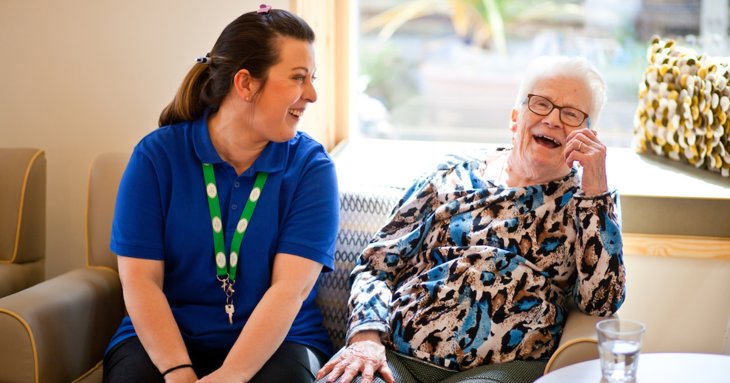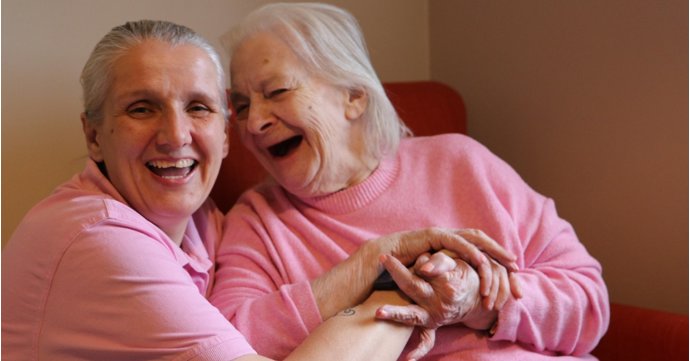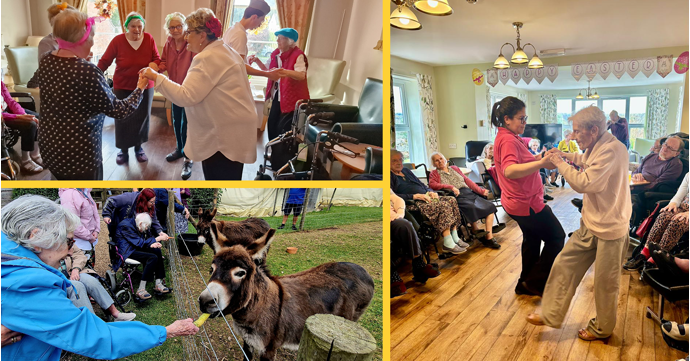For families considering residential or nursing care, working out how much care will cost can be complicated.
SoGlos spoke to Gloucestershire charity Lilian Faithfull Care to find out how much a care home costs and how to find out what funding options are available.
About the expert – Martin Hughes from Lilian Faithfull Care

As a charity providing elderly care to people across Gloucestershire, Lilian Faithfull Care is proud to put people above profits to make a ‘home for life’ for all of its residents.
Its expert team of understanding staff offer day and respite care; assisted living; residential care; and specialist dementia and end of life care across its five homes and two day care hubs.
What is the average cost of residential care in Gloucestershire?
The average cost of residential care for elderly people in the south west is £700 per week, while nursing care costs around £1,015 per week, according to the LaingBuisson Care of Older People UK Market Report in 2019.
The cost of care will vary depending on a person’s individual needs, where they live and which care provider they choose. How they pay for their care also depends on their own financial situation and if they’re entitled to any funding from the NHS or local authority.
What care home funding options are available?
Unlike NHS care, which is free at the point of need, funding for nursing and residential care is means tested. An assessment is needed to determine whether care can be funded by the NHS or by the local authority.
Anyone deemed to have a primary health need could have their care fully or partially paid for by the NHS; through fully funded continuing care; Funded Nursing Care or the Registered Nurse Care Contribution.
For people who do not have a primary health need, the cost of their care is often split between their own personal savings and assets, as well as means tested local authority funding.
What is a primary health need?
A primary health need is determined by two different assessments. An initial assessment, which is usually conducted by a nurse, doctor or social worker, will determine if a full assessment is needed.
A full assessment is then conducted by a multidisciplinary team of health and social care professionals who are already involved in a person’s care. They will assess needs including nutrition, mobility, communication and understanding and mark them as priority, severe, high, moderate, low, or no needs.
If a person has at least one priority need, or severe needs in two different areas, they will usually qualify for NHS funded care, however people with a severe need in one area and a number of other high or moderate needs, may also qualify.
Who is eligible for local authority funding?
If a person doesn’t have a primary care need, but does need care in a residential setting, they can still get help with care home funding from the local authority. This funding is means tested and takes into account a person’s income, savings and any assets they own, including properties. The combined value of their income, savings and assets is called total capital.
The national guidelines for England state that if a person’s total capital is worth less than £14,250, they will be entitled to the maximum amount of funding for their care.
If the value is above £14,250, but below £23,250, the local authority will carry out a financial assessment and an assessment of the person’s specific care needs to determine how much support it can offer.
Anyone whose capital exceeds £23,250 will be expected to self-fund their care, unless their care is temporary. However, if they’re a homeowner, the value of their property may be disregarded if their spouse or partner, a family member who is disabled, over 60 or under 18 lives in the property they own.
Do self-funders have to sell their home to pay for care?
Self-funders have various options to help pay for the cost of care, such as income from pensions, annuities and rental properties, or from savings, stocks and shares. It may be possible for homeowners to rent out their property to cover their care costs. People self-funding could also be entitled to benefits such as Attendance Allowance and Pension Credit.
If a person needs to move into care quickly and does wish to sell their home to pay for it, Lilian Faithfull can defer their care fees until the property sells and won’t charge interest.
We recommend anyone exploring self-funding options to seek specialist independent financial advice from an accredited Society of Later Life Adviser (SOLLA) before making any decisions.
What happens if someone is living in a care home and the money to fund their care runs out?
If a person’s capital dips below the £23,250 threshold, they will need to be reassessed by the local authority and providing their care needs can be met in a residential setting, they will start to receive state funded support.
As a charity, Lilian Faithfull has a Home for Life pledge, which means that we will never ask a resident to leave one of our homes because of financial reasons. We promise to work with residents, their families and the local authority to continue to provide care as long as they need it, even if it costs us more than we receive.





















